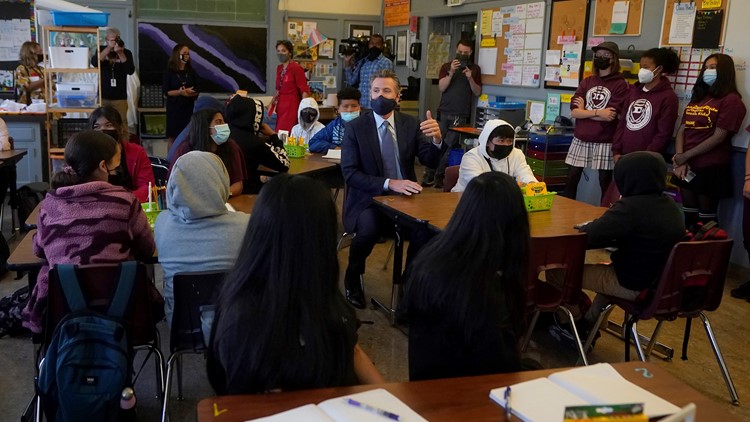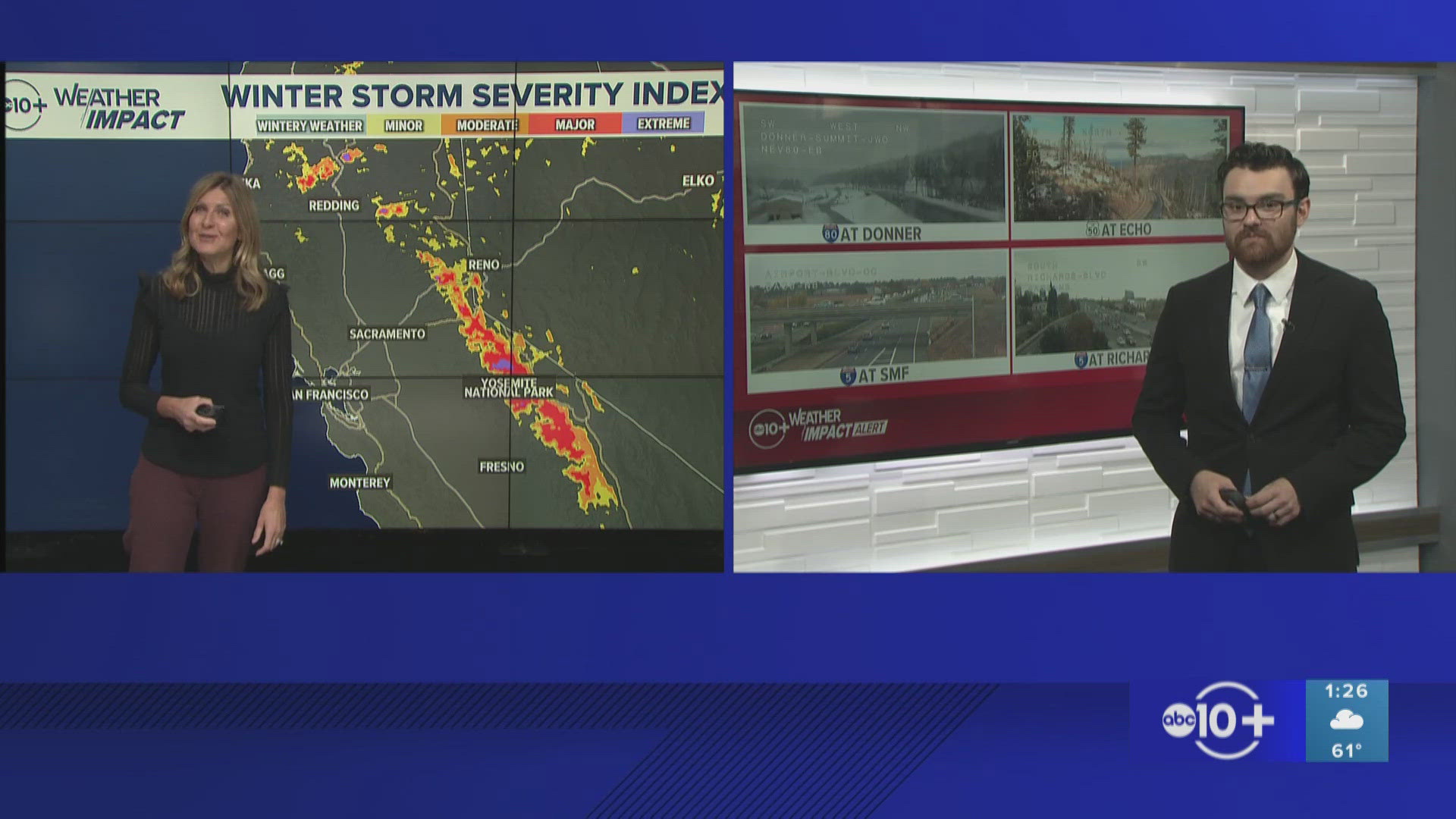CALIFORNIA, USA — This story was originally published by CalMatters.
In another aggressive effort to stop the spread of COVID-19 and ensure schools remain open, Gov. Gavin Newsom announced Friday a vaccine mandate for students ages 12 and older, making California the first state in the nation to require students to be fully vaccinated for in-person instruction.
The mandate would add the COVID-19 vaccine to the list of required immunizations, which includes mumps, measles and rubella. Newsom issued this order in the aftermath of similar mandates from the state’s largest districts, Los Angeles Unified and San Diego Unified.
“Vaccines work,” Newsom said. “It’s why California leads the country in preventing school closures and has the lowest case rates. We encourage other states to follow our lead to keep our kids safe and prevent the spread of COVID-19.”
Parents still have some time to get their students vaccinated. The state mandate will go into effect only once the federal Food and Drug Administration fully approves vaccines for those 12 and older. Upon FDA approval, students will have until the start of the following academic term, either January 1st or July 1st, to be fully vaccinated.
Ariel Harmon-Holmes, a parent of two Los Angeles Unified students, said the mandate made her proud to live in California.
“I was very pleased that LA Unified enacted the vaccine mandates,” she said. “I think California should continue to have a track record of leading the way.”
Although Harmon-Holmes’ children are too young to be vaccinated, she said she would get them their shots as soon as possible, even under the FDA’s emergency use authorization, which comes before full approval.
“FDA approval is just the cherry on the sundae,” she said. “I’m much much more concerned about them getting COVID than I am about them getting the vaccine.”
This mandate, however, doesn’t just put the responsibility on students. All public school employees will be required to be vaccinated as soon as the mandate takes effect for students. Until now, teachers and staff were either required to be vaccinated or undergo regular testing for COVID-19; negative tests will no longer suffice.
The California Teachers Association endorsed the mandate in a statement from its president E. Toby Boyd.
“While recognizing the need for medical and religious exemptions, we believe vaccinations are key for both student and educator safety, keeping our schools open for in-person instruction and for combating this pandemic,” Boyd said.
Leaders at some smaller, rural districts in more conservative parts of the state are expecting more pushback. David MacLeod, superintendent of Warner Unified in San Diego County, said he personally supports the mandate.
“We won’t beat COVID unless we can get people vaccinated,” he said. “It’s a race of time. It’s us against the virus.”
But the leader of the 208-student district said he expects some students and staff will leave the district because of the mandate, hurting the district’s already fragile budget. While the mandate comes from the state, MacLeod says, it’s the district officials who will have to enforce it.
“We get a lot of political pushback,” he said. “The angry parents are lashing out, and we’re the people who can personify all the evils of the world.”
The California Department of Public Health will develop the rules for personal and religious exemptions following a public comment period. Details for that process have not yet been released.
Monica Gandhi, a professor of medicine at UC San Francisco, said the rules around personal exemptions are currently too vague. She said exemptions should be limited to medical and religious reasons. The regulations surrounding the latter, she said, should be tightened.
“I think the personal belief exemptions are too leaky,” Gandhi said. “Medical exemptions are quite limited, and for religious exemptions there needs to be a demonstrated sincerely held belief.”
The state expects that based on current FDA timelines, students grades 7-12 will be required to be vaccinated by July 1, 2022.
Students who are currently too young to get the vaccine will be required to receive their doses as soon as they reach the required age, but they’ll be given a “reasonable period of time to receive both doses.”
Students who do not get fully vaccinated will be required to enroll in independent study, the only alternative to in-person instruction being offered this year.
The mandate comes in the aftermath of Newsom’s overwhelming victory in September’s recall election, during which the governor leaned into mask and vaccine mandates.
Despite recent parent protests against student vaccine requirements, a survey released this week by the Kaiser Family Foundation found that most families nationwide are willing to vaccinate their children.
Harmon-Holmes said most of her peers also support a vaccine requirement for students, but she suspects their voices are being drowned out.
“The parents who are against it are very, very vocal, but that’s not a representative sample,” she said. “I hope that most parents come to agree.”
CALmatters.org is a nonprofit, nonpartisan media venture explaining California policies and politics.
READ ALSO:



